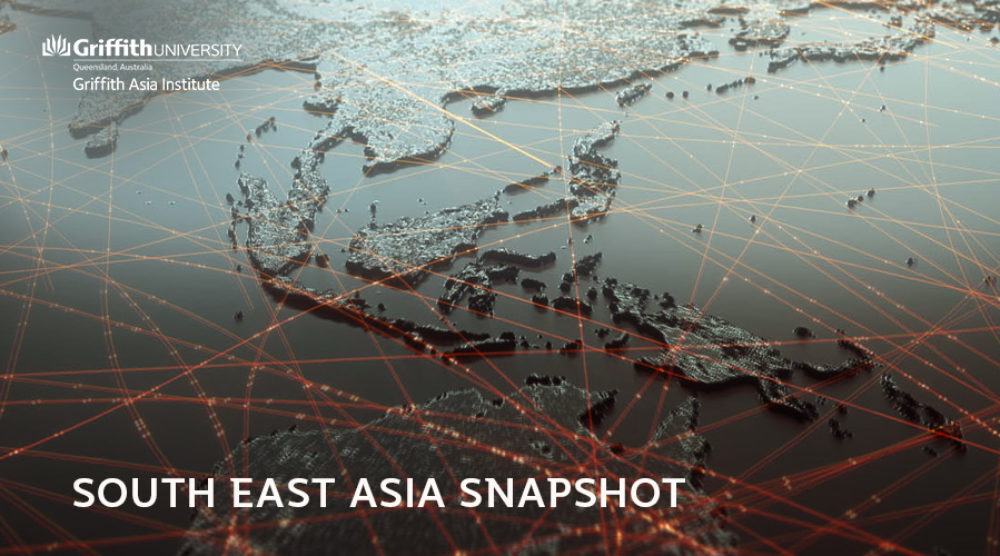Ferdinand Marcos Jr seeks military presence in the South China Sea
During the Philippines’ Presidential Debate on 15 February 2022, Ferdinand Marcos Jr—the only son of former president Ferdinand Marcos Sr and a presidential candidate for the upcoming election—revealed his ambition for military deployment in the South China Sea. According to Marcos Jr, this plan would be to protect the local fishermen from the growing Chinese aggression in the region.
He further stated that the deployment plan would not be an offensive stance toward China, but rather serve as a defensive measure. In the debate, Marcos Jr also said that, if elected, he would continue President Duterte’s pro-China policy while seeking to also improve defense relations with the Philippines’ historically, the United States.
Along with balancing these relationships, he also believed that by having the Philippines’ military presence in the South China Sea, the government could defend the country’s maritime territorial claim in the disputed areas. In contrast, Manny Pacquiao—another presidential candidate—said he would push for negotiations with China while strengthening defense ties with the United States.
As Marcos Jr is currently the leading candidate in the opinion polls, this deployment ambition could become reality, potentially resulting in escalated tensions for two main reasons. First, it could sour the relationship between the Philippines and China while potentially provoking other maritime claimant states like Vietnam to deploy maritime forces. Second, it could weaken ASEAN’s Code of Conduct negotiations and make it even harder to reach a resolution by its targeted 2022 deadline.
ASEAN’s Special Envoy attempts to visit Myanmar next month
In a press conference after the ASEAN Foreign Ministers’ Retreat on 17 February 2022, Cambodia’s Foreign Minister Prak Sokhon, who is also ASEAN’s Special Envoy, unveiled plans to visit Myanmar in March.
Sokhon hopes to meet with Min Aung Hlaing, the junta’s Foreign Minister, along with other political actors. He also hopes to deliver ASEAN’s humanitarian assistance to a hospital in Yangon.
Sokhon also plans to engage with the National Unity Government (NUG), but this is a complex task as they have been labeled as terrorists by the military junta. His hope is that the Tatmadaw will allow him to facilitate talks between the military and the NUG.
Despite these challenges, Prak Sokhon sees this potential first visit as a basic framework to resolve Myanmar’s political crisis. Importantly, he has not set any preconditions to meet with all parties as he believes it is important not to be too unrealistically ambitious at this stage.
The Tatmadaw has not yet issued any statement regarding this planned trip. It remains a possibility that the junta could reject the visit, as it did the visit from the special envoy from Brunei last year. However, it is hoped that this visit can go ahead and be another step in facilitating a potential resolution.
ASEAN’s special envoy has also requested that the junta meet with their political opponents. However, the junta has already rejected this proposal. According to the junta, since they are labeled as a terrorist group, meeting with them would undermine both ASEAN’s charter and counter-terrorism efforts.
Despite the rejection, many countries have encouraged Cambodia to pursue this course of action. The NUG’s Foreign Minister encouraged ASEAN’s special envoy to meet with the NUG members. Within the region, Indonesia stressed the importance of the special envoy meeting with all parties involved, while Malaysia also encouraged the envoy to meet with the NUG and the military government.
Cambodia is, therefore, in a precarious position. Only visiting parties that the junta allows may appear as if ASEAN is accepting NUG’s status as a supposed “terrorist group”. Alternately, if it is to impose further demands, the junta might not allow the visit to happen.
Malaysian Prime Minister visits Cambodia
Malaysian Prime Minister Ismail Sabri Yaakob met with Cambodia’s Prime Minister Hun Sen during his visit to Cambodia on 23 and 24 February 2022. Both sides discussed Myanmar, economic ties and other regional concerns.
Regarding issues in Myanmar, both supported the implementation of the 5-Point Consensus. Moreover, the two leaders also discussed the South China Sea and the Russia–Ukraine conflict. They pledged to promote bilateral trade, investment, education, and tourism to bolster their countries’ economies after the COVID-19 pandemic.
The Malaysian Ambassador to Cambodia and the Malaysian Chamber of Commerce described this meeting as a great opportunity and a turning point for both countries to forge closer and more comprehensive economic and investment relations. The Council for the Development of Cambodia (CDC) encouraged Malaysia to reevaluate its investment strategies in order to compete with the other countries in Cambodia.
The visit could be a means to dilute the tension with the ASEAN Chair after a fierce exchange of rhetoric between the Malaysian Foreign Minister and Prime Minister Hun Sen in January. While many topics were discussed, the talks mainly focused on economic recovery following the COVID-19 pandemic, with hopes that this high-level visit could lead to deeper economic cooperation in the future.
Sovinda Po is a Research Assistant at the Griffith Asia Institute.








